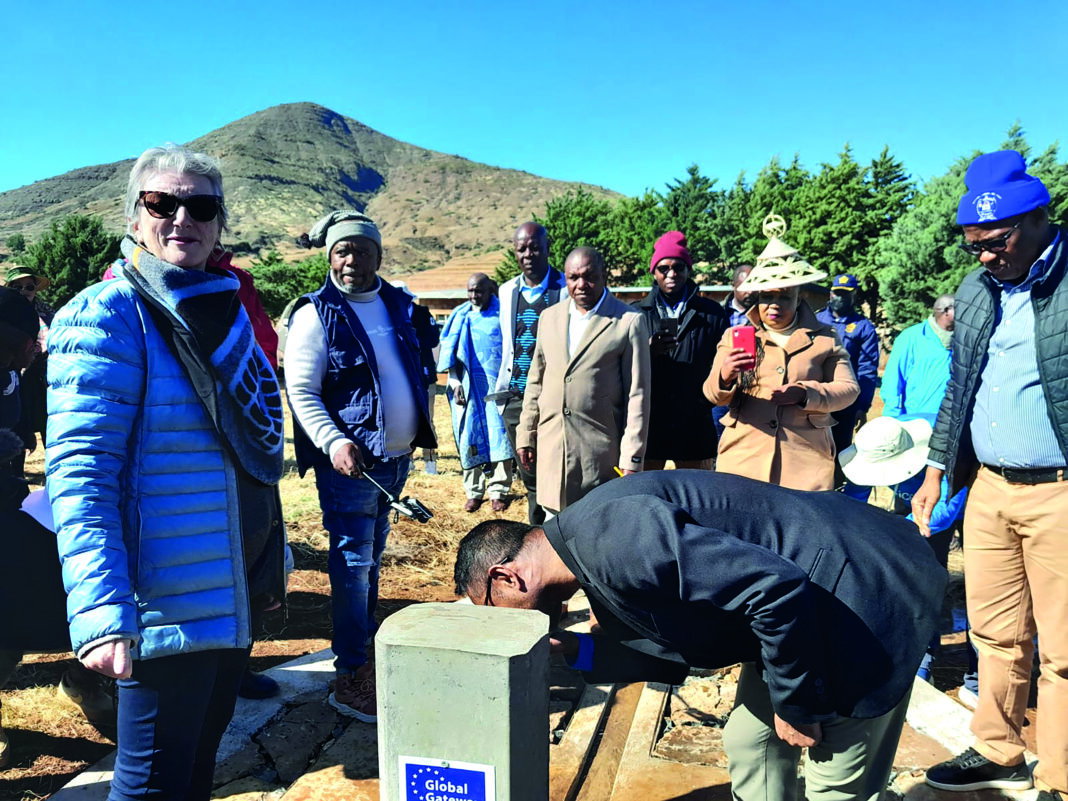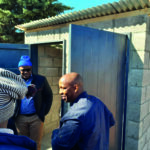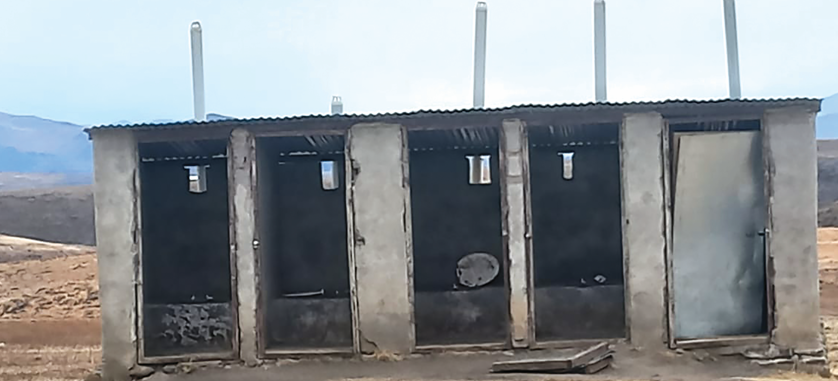A significant stride towards universal access to water, sanitation, and hygiene (WASH) was celebrated this week at St. Sebastian’s High School in Hloahloeng, Mohale’s Hoek.
The occasion marked the official rollout and the first tangible results of the Metsi a Lesotho Rural WASH Program, a transformative five-year initiative jointly implemented by the Government of Lesotho, the European Union (EU), and UNICEF Lesotho.
Launched in July 2024, the program seeks to improve lives in rural communities by rehabilitating and expanding water systems across all ten districts, aiming to reach 250 communities, 125 schools, and 15 health facilities, ultimately serving over 135,000 people.
Timed to coincide with Menstrual Hygiene Day, the event underscored the program’s holistic approach, which extends beyond infrastructure to encompass dignity, equality, and opportunity, particularly for adolescent girls.
Deepak Bhaskaran, UNICEF Lesotho Representative, expressed his profound gratitude to all partners.
Bhaskaran highlighted the powerful coalition formed since the program’s launch in July 2024, involving the Ministries of Environment, Natural Resources, Education and Training, Health, and Local Development.
He said these four ministries have played a very important role in ensuring that this program is successfully implemented, and it is aligned with the national priorities and the national systems.
The ambitious program seeks to rehabilitate and expand water systems to reach 250 communities, 125 schools, and 15 health facilities across all 10 districts, ultimately serving 135,000 people.
Bhaskaran emphasised that the initiative goes beyond infrastructure.
“This initiative is not only about hardware, it’s not only about infrastructure, it is about laying the foundation of stronger institutions and more resilient systems,” he explained, noting the integration of geographic information systems for data-driven decision-making and capacity building for community platforms.
Even in its early stages, the impact is evident. “As of today, four community water systems and one school water system has been completed in Maseru and Mohale’s Hoek. That one school system is one here in St. Sebastian High School,” Bhaskaran revealed, sharing a heartwarming anecdote.
He further linked the program to Menstrual Hygiene Day, stressing that WASH is not just about services. It is about dignity, equality and opportunity, particularly for adolescent girls.
He highlighted alarming statistics, saying according to the Lesotho Vulnerability Assessments Committee’s report, 33 percent of households lack basic water, sanitation and hygiene facilities. UNICEF’s situation analysis report also highlights that 91 percent of secondary schools lack proper menstrual hygiene facilities, leading to absenteeism among girls.
The Minister of Education and Training, Ntoi Rapapa, underscored the critical importance of WASH facilities for education.
He said access to clean and safe water, adequate sanitation and proper hygiene practices remain a major challenge in many parts of Lesotho, including Hloahloeng, particularly in rural areas.
Rapapa said these challenges impact every aspect of citizens’ lives, but none more than children, the future of this nation.
Minister Rapapa emphasised how the lack of proper facilities hinders school attendance and learning, especially for girls.
“Lack of management facilities is a significant cause of obsolescence and drop-out among girls, robbing them of their right to education and hindering our national development,” he said.
EU Ambassador to Lesotho, Paola Amadei, expressed her pride in witnessing the initial successes.
“One year ago, the Kingdom of Lesotho and the European Union launched this joint initiative with the goal of rehabilitating or constructing, over the next five years, water, sanitation, and hygiene facilities for 250 communities. Today, I am proud to witness the first tangible results of Metsi a Lesotho, the completion of the first infrastructure project here at St. Sebastian High School,” she stated.
Amadei highlighted Metsi a Lesotho’s alignment with the European Union’s Global Gateway strategy and Lesotho’s National Strategic Development Plan II.
The government of Lesotho, in a statement, hailed the program as a significant milestone.
“Today marks a significant milestone in our journey toward universal access to clean water and dignified sanitation for every Mosotho. It brings us closer to a Lesotho where every child can drink clean water, every clinic can offer safe care, and every school can be a place of health and dignity. Metsi a Lesotho is not just about infrastructure, it is about restoring the basic rights of Basotho,” the statement reads.
Katleho Mabeleng, the Member of Parliament (MP) for Hloahloeng, briefly acknowledged the initiative, drawing on his personal experience.
He said he experienced first-hand the struggles of schooling in a school where there is no water and toilets, and pleaded with students, teachers, and the community to safeguard the new infrastructure for future generations.
The roll-out event also highlighted the crucial role of community engagement and school-based activations, which have mobilised children and young people as champions for water security. Through creative expressions like poetry, songs, and drama, they are raising awareness about water conservation and hygiene.
Summary
- The occasion marked the official rollout and the first tangible results of the Metsi a Lesotho Rural WASH Program, a transformative five-year initiative jointly implemented by the Government of Lesotho, the European Union (EU), and UNICEF Lesotho.
- He said these four ministries have played a very important role in ensuring that this program is successfully implemented, and it is aligned with the national priorities and the national systems.
- Today, I am proud to witness the first tangible results of Metsi a Lesotho, the completion of the first infrastructure project here at St.

Ntsoaki Motaung is an award-winning health journalist from Lesotho, specializing in community health stories with a focus on sexual and reproductive health and rights, as well as HIV. She has contributed to platforms like “Be in the KNOW,” highlighting issues such as the exclusion of people with disabilities from HIV prevention efforts in Lesotho.
In addition to her journalism, Ntsoaki serves as the Country Coordinator for the Regional Media Action Plan Support Network (REMAPSEN). She is also a 2023 CPHIA Journalism Fellow.







